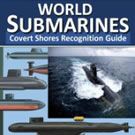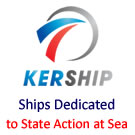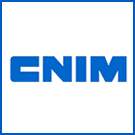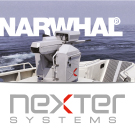|
|
|||
 Reduced stern wave on DTMB5415 destroyer hull form. Without Hull Vane® (top) and with Hull Vane® (bottom) Reduced stern wave on DTMB5415 destroyer hull form. Without Hull Vane® (top) and with Hull Vane® (bottom) |
|||
|
|
|||
| Operational profile In the paper presented at MAST Asia, the Hull Vane® is compared to often used alternatives, such as trim wedges and interceptors. The chosen hull form is a generic fast displacement hull which is often used as a parent hull for naval ships. The results are consistent with CFD studies, model tests and full scale trials carried out with Hull Vane® on existing ships. The benefits are analysed for three different operational profiles for a similar 50 m vessel. Side benefits While reducing the energy consumption is usually the main goal, the Hull Vane® has additional effects which are very desirable for naval ships. When a ship sails in waves, the Hull Vane® dampens the pitching and yawing motions, making helicopter landings safer and improving the performance of onboard systems and personnel. As the Hull Vane® reduces the stern wave, the propeller loading and the engine power for a given speed, the ship will also have a reduced acoustic (and visual) signature. On newbuild naval ships, the cost savings on engine power to reach a given speed are generally much higher than the cost of the Hull Vane. Retrofitting a Hull Vane® on existing naval ships typically has a payback period of one to three years. Maritime Innovation Award After many years of development, Hull Vane® B.V. was established in 2014 and is located in Wageningen, the Netherlands. The Hull Vane® is now installed on five vessels, and seven more are currently under construction. Just recently, Hull Vane® won the 2016 Maritime Innovation Award from the Royal Institution of Naval Architects. Sales director Bruno Bouckaert will be available for meetings at MAST Asia |
|||
|
|
|||
 Wake behind transom on patrol boat at 11 kn without Hull Vane® (left) and with Hull Vane® (right), leading to 25% lower fuel consumption |
|||
Energy saving device Hull Vane presented to Asian naval sector at MAST Asia 2017 Conference
- Posted On





 Typical Hull Vane configuration on patrol vessel
Typical Hull Vane configuration on patrol vessel




